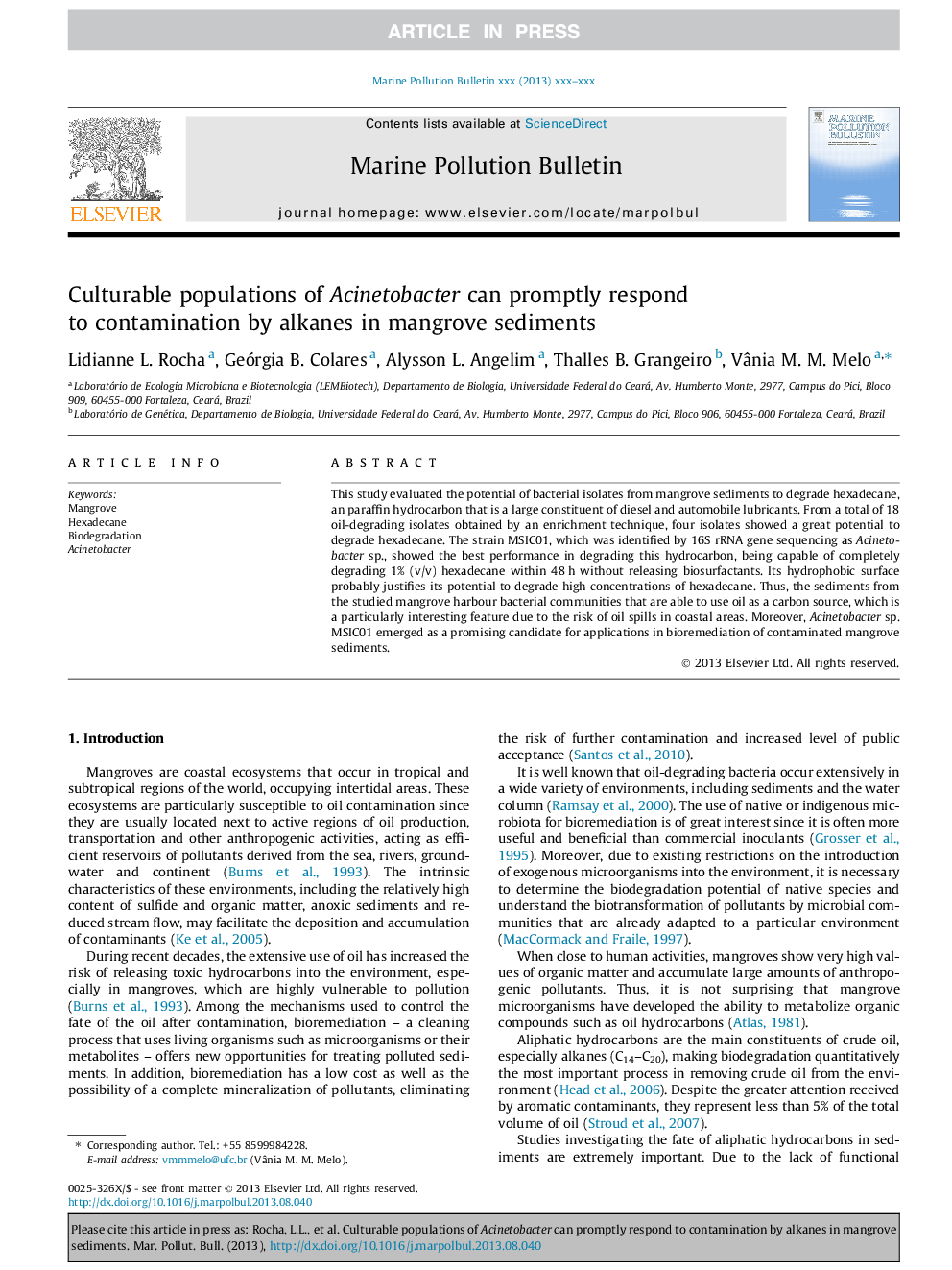| Article ID | Journal | Published Year | Pages | File Type |
|---|---|---|---|---|
| 6359103 | Marine Pollution Bulletin | 2013 | 6 Pages |
Abstract
This study evaluated the potential of bacterial isolates from mangrove sediments to degrade hexadecane, an paraffin hydrocarbon that is a large constituent of diesel and automobile lubricants. From a total of 18 oil-degrading isolates obtained by an enrichment technique, four isolates showed a great potential to degrade hexadecane. The strain MSIC01, which was identified by 16S rRNA gene sequencing as Acinetobacter sp., showed the best performance in degrading this hydrocarbon, being capable of completely degrading 1% (v/v) hexadecane within 48Â h without releasing biosurfactants. Its hydrophobic surface probably justifies its potential to degrade high concentrations of hexadecane. Thus, the sediments from the studied mangrove harbour bacterial communities that are able to use oil as a carbon source, which is a particularly interesting feature due to the risk of oil spills in coastal areas. Moreover, Acinetobacter sp. MSIC01 emerged as a promising candidate for applications in bioremediation of contaminated mangrove sediments.
Related Topics
Physical Sciences and Engineering
Earth and Planetary Sciences
Oceanography
Authors
Lidianne L. Rocha, Geórgia B. Colares, Alysson L. Angelim, Thalles B. Grangeiro, Vânia M.M. Melo,
